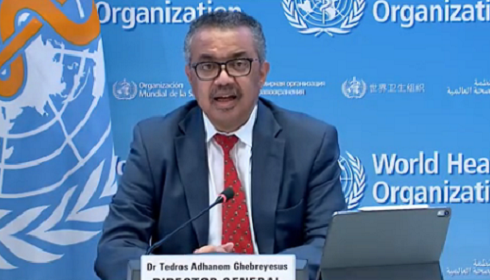
Global Health Inequity in Focus as WHO Pushes for Unity at 78th World Health Assembly
The 78th World Health Assembly (WHA78) kicked off on May 19 in the Palais des Nations in Geneva, laying the groundwork for key decisions about global health policy. The assembly brought together representatives from 194 countries to elect new leaders, approve the agenda, and, most importantly, to evaluate the draft of a much-discussed pandemic accord. While the processes appear to be procedural, billions of people's health is at stake.
At the centre of the debate is a proposed treaty on pandemic prevention, preparedness, and response. This proposed legal framework, formally known as the "WHO Convention" or "Agreement on Pandemic Preparedness," is the outcome of more than two years of negotiations following the devastating impact of COVID-19. The treaty's goal is to enable faster global response, transparent exchange of information and technology, and equal access to vaccines and medical tools during health emergencies.
However, the treaty's route is far from smooth.
"This isn't just about avoiding the next outbreak." It's about correcting deep injustices exposed by the previous one," stated Dr Tedros Adhanom Ghebreyesus, WHO Director-General, during his inaugural statement at about 11:45 CEST. His statements referred to how, during the COVID-19 pandemic, wealthier countries received life-saving supplies first, leaving many poorer countries behind.
According to a report published in The Lancet in 2023, by mid-2021, more than 80% of vaccines had been distributed to high-income countries, despite lower-income countries having similar or greater dangers. This uneven distribution exacerbated existing health disparities and prolonged the pandemic worldwide.
The agreement under consideration is a comprehensive framework that addresses surveillance systems, lab capacity, technology transfers, and data exchange. It even suggests a "Pathogen Access and Benefit Sharing System" to ensure that any biological samples supplied for worldwide study come with guaranteed benefits, such as access to the ensuing vaccinations.
Critics believe that such a pact could violate national sovereignty – countries' freedom to create their own laws – particularly if it requires them to exchange data or medical supplies during a crisis. Supporters argue that without international cooperation, no country is genuinely safe.
Dr Angela Kane, former UN High Representative for Disarmament Affairs, told Nature magazine earlier this year that "the world needs enforceable commitments, not just polite promises, when the stakes are this high."
India, along with several other developing countries, has asked for the treaty to provide "equitable access and local manufacturing capacity" — in other words, the ability to produce vaccines and medicines locally rather than relying on international businesses or wealthier governments.
While legal frameworks are crucial, public health experts caution against relying solely on paperwork. "No treaty can compensate for weak health systems," said Dr Ayoade Alakija, a Nigerian epidemiologist and former co-chair of the ACT-Accelerator effort. She went on to say that governments must invest in local healthcare, training, and infrastructure to fully prepare.
According to the World Bank, 75% of low-income nations spend less than $100 per person per year on health care, which is significantly less than the WHO's recommended $500 for basic coverage. Unless this changes, whether through a treaty or not, the next epidemic might overwhelm the world's most vulnerable.
WHA78 Committee A, which will discuss the draft treaty, met later in the afternoon. The following days will see heated negotiations, red lines from various countries, and possibly the seeds of new global compromises. However, it is doubtful whether we will reach an agreement before the Health Assembly finishes.
As the world watches Geneva, one thing is clear: COVID-19 taught us not only about viruses but also about how fragile international cooperation can be in the face of fear, profit, and inequity. Failure to address this issue at WHA78 could lead to a repeat of past events.